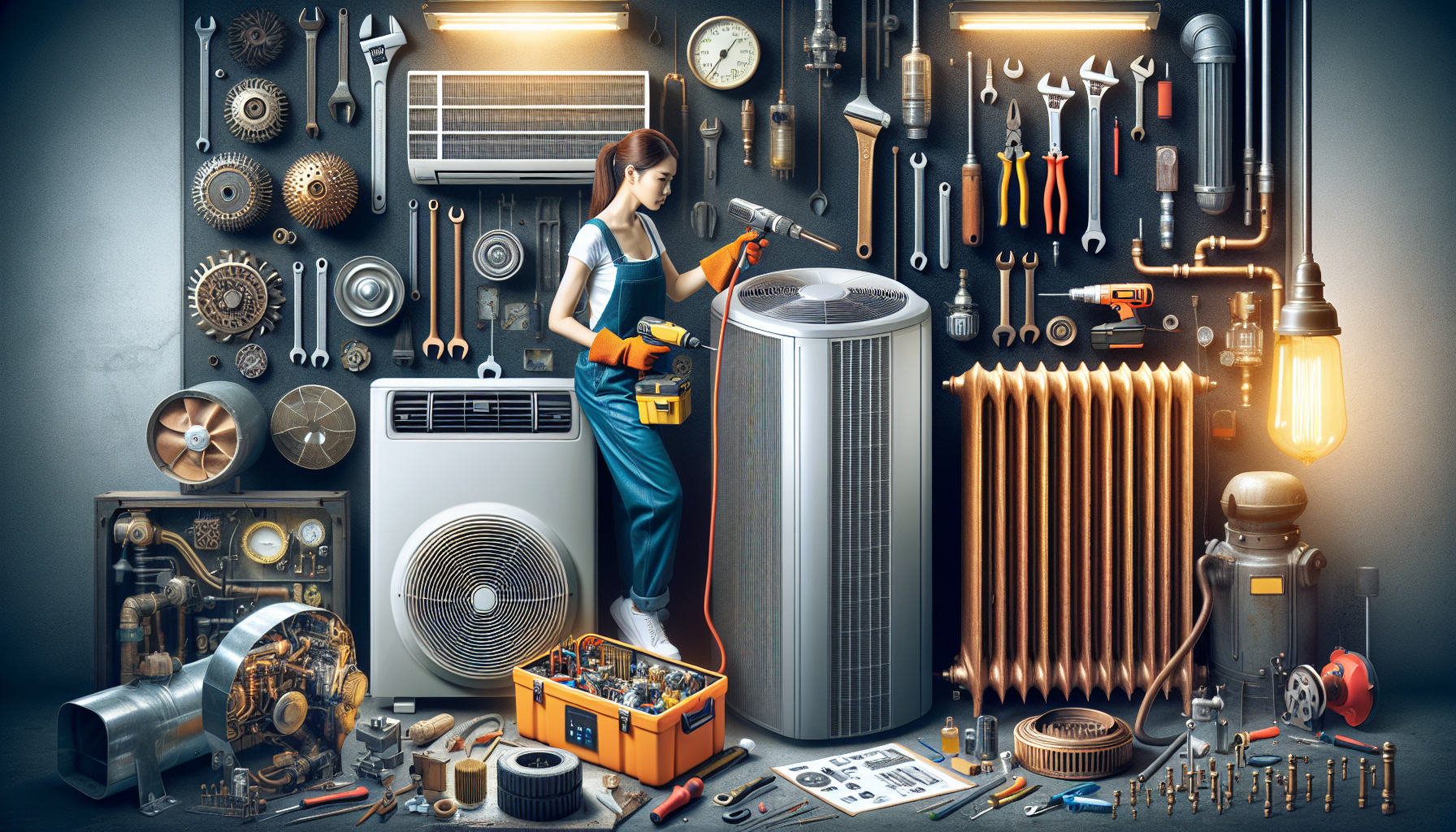Local hvac contractors for all heating and cooling needs.
Local hvac contractors for all heating and cooling needs.
Blog Article
Just How to Improve Power Effectiveness With Your HVAC System and Furnace Upgrades
As power expenses continue to climb, the value of improving energy effectiveness through HVAC system and furnace upgrades can not be overemphasized. Examining your current system's efficiency and thinking about energy-efficient alternatives are important initial steps.
Analyze Your Existing System
Prior to starting any upgrades, it is important to assess your existing cooling and heating system and furnace to recognize their effectiveness and performance. This initial examination gives a structure for recognizing areas that require enhancement and informs decisions concerning prospective upgrades. Begin by checking out the age of your a/c system, as obsolete designs might lack modern-day energy-saving features.

Power consumption documents will certainly likewise be important in gauging your system's functional expenses. By analyzing energy bills, you can establish patterns of energy usage and determine spikes that warrant more examination. Consider carrying out a professional power audit to obtain a professional analysis of your system's performance. This detailed evaluation will certainly guide you in making notified selections about essential upgrades, making sure that your investments in power efficiency generate the preferred advantages.
Upgrade to Energy-Efficient Versions
Updating to energy-efficient models is an essential action in boosting the general performance of your a/c system and heater. These modern units are developed to take in much less power while supplying optimal heating and cooling, leading to considerable expense financial savings on energy costs and a lowered environmental footprint.
When considering an upgrade, search for designs that have high Seasonal Power Effectiveness Ratios (SEER) for a/c and Yearly Gas Use Efficiency (AFUE) ratings for heating systems. These scores suggest the effectiveness of the systems, with greater numbers showing much better performance. Energy-efficient models typically integrate sophisticated modern technologies, such as variable-speed electric motors and clever thermostats, which better boost power cost savings.
Furthermore, numerous energy-efficient heating and cooling systems are equipped with improved insulation and far better securing, which lessen energy loss and improve indoor comfort. hvac. While the preliminary financial investment might be greater, the lasting cost savings on energy prices and prospective tax obligation motivations for making use of energy-efficient home appliances can offset this expense dramatically

Eventually, upgrading to energy-efficient designs not just adds to a more sustainable future but likewise raises the comfort and effectiveness of your home or organization.
Optimize System Settings
To maximize the efficiency of your heating and cooling system and heating system, it is vital to maximize system setups customized to your certain requirements. Begin by establishing your thermostat to an energy-efficient temperature level. The U.S. Department of Energy recommends a winter season setting of 68 ° F when you are awake and lowering it while you sleep or are away. In summer season, go for 78 ° F throughout the day.
Utilize programmable or clever thermostats that enable you to arrange temperature adjustments instantly. This guarantees your system operates just when essential, minimizing power intake. Furthermore, guarantee that your system is established to run in the right mode-- heating in winter months and air conditioning in summertime-- while avoiding the continual fan option unless needed for air circulation.
Consider check my blog zoning systems that allow individualized convenience in different locations of your home, better enhancing effectiveness. By fine-tuning these setups, you can attain significant energy savings while maintaining a comfortable living atmosphere.
Improve Insulation and Sealing
A well-insulated home is vital to making the check my site most of the effectiveness of your cooling and heating system and furnace. Correct insulation reduces the workload on these systems, thus saving power and decreasing energy costs. Begin by assessing your home's insulation in areas such as the attic, walls, and floorings. Insulation products like fiberglass, foam, and cellulose can significantly enhance thermal resistance, helping to keep conditioned air inside and outdoor air out.
Along with insulation, sealing gaps and cracks is important. Pay special attention to windows, doors, and any kind of infiltrations in walls, such as electric outlets and pipes fixtures. Weatherstripping and caulking can effectively secure these openings, preventing drafts that endanger your cooling and heating performance.
Additionally, guarantee that ducts are effectively shielded and sealed. Dripping air ducts can bring about considerable energy losses, reducing system efficiency. Utilizing mastic sealer or metal tape to seal duct joints can enhance airflow and efficiency.
Schedule Routine Upkeep
Regular maintenance of your Heating and cooling system and heating system is necessary for making certain optimum efficiency and durability. Throughout maintenance, a qualified specialist will clean and replace filters, check cooling agent degrees, check ductwork for leakages, and assess overall system operation.
It is advised to set up upkeep a minimum of twice a year-- you can try these out once in the springtime for the air conditioning system and when in the succumb to the heater. furnace repair. Routine maintenance aids preserve constant indoor temperature levels, making sure comfort throughout the year. Additionally, a properly maintained system runs much more efficiently, which can bring about recognizable reductions in energy costs
Ignoring maintenance can cause reduced efficiency, raised deterioration, and ultimately, system failing. By prioritizing regular solution, property owners can stay clear of unforeseen break downs and guarantee their a/c system and heater run at peak efficiency. Investing in upkeep is an important action in boosting energy effectiveness and creating a much more sustainable home atmosphere.
Conclusion
Finally, enhancing energy efficiency within a/c systems and furnace upgrades is necessary for reducing energy intake and improving general convenience. A methodical strategy that includes evaluating the existing system, investing in energy-efficient designs, maximizing settings, enhancing insulation, and organizing normal maintenance can result in substantial advantages. Executing these methods not just decreases energy expenses however additionally contributes to a more sustainable atmosphere, making it essential for house owners to focus on these upgrades.
Report this page